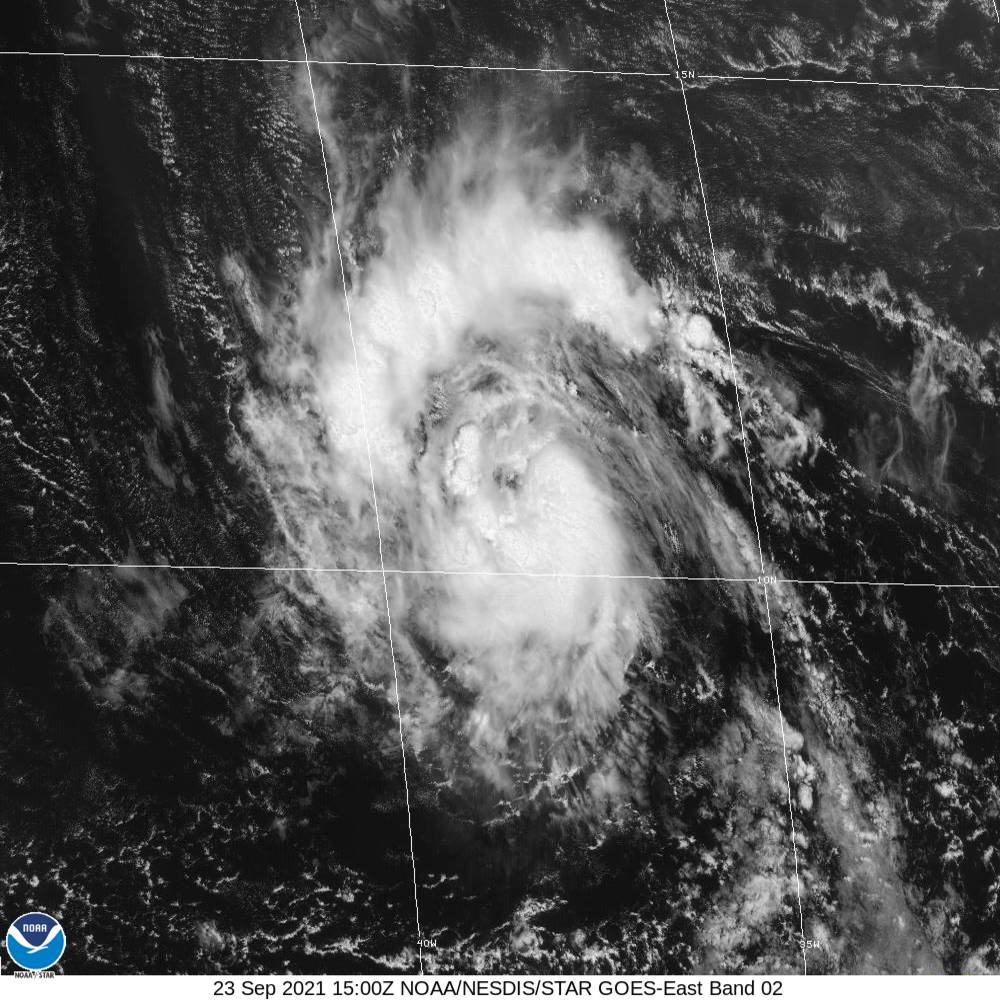Tropical Storm Sam gathering strength in Atlantic and forecast to be major hurricane
Tropical Storm Sam is expected to reach hurricane status by Friday

Tropical Storm Sam is gathering strength in the Atlantic Ocean and is forecast to become a major hurricane, according to reports.
Sam was expected to reach hurricane status by Friday, said forecasters from the National Hurricane Center, and it will continue to strengthen over the weekend.
Wind speeds could reach up to 115mph, making Sam a Category-3 hurricane. It is the 18th named storm of the season and if it continues to strengthen as forecast, will be the fourth major hurricane this year.
The tropical storm formed on Thursday and has so far reached wind speeds of 50mph. The path of the storm remains unclear but forecasters expect it to track in a west-northwest direction over the next 24 hours.
The last major hurricane was Ida which made landfall last month near New Orleans, Louisiana as a Category-4 storm. It was the joint-fifth strongest hurricane ever to make landfall with winds of up to 150mph and several feet of storm surge.
Ida left dozens of people dead across the US after its remnants brought historic levels of rainfall and tornadoes.
At least 50 people were killed across six northeastern states as some areas received a month’s worth of rain in a matter of hours.
Last year saw a record-breaking 30 named storms, wreaking a trail of destruction across the US, Central America and the Caribbean.
The climate crisis is creating conditions which are driving more powerful storms.
While it’s unclear whether the climate crisis will mean a greater number of hurricanes in the future, scientists have long warned that increased global heating will likely make the storms that we do experience more destructive.
The ocean absorbs over 90 per cent of excess heat caused by greenhouse gas emissions – largely caused from the burning of fossil fuels – and that warm water feeds into hurricanes.
And as the planet heats up, more moisture is held in the atmosphere, meaning storms hold the potential of a lot more rainfall.
Subscribe to Independent Premium to bookmark this article
Want to bookmark your favourite articles and stories to read or reference later? Start your Independent Premium subscription today.

Join our commenting forum
Join thought-provoking conversations, follow other Independent readers and see their replies